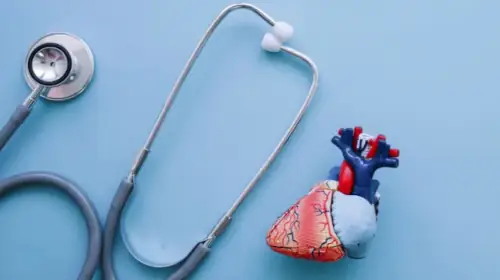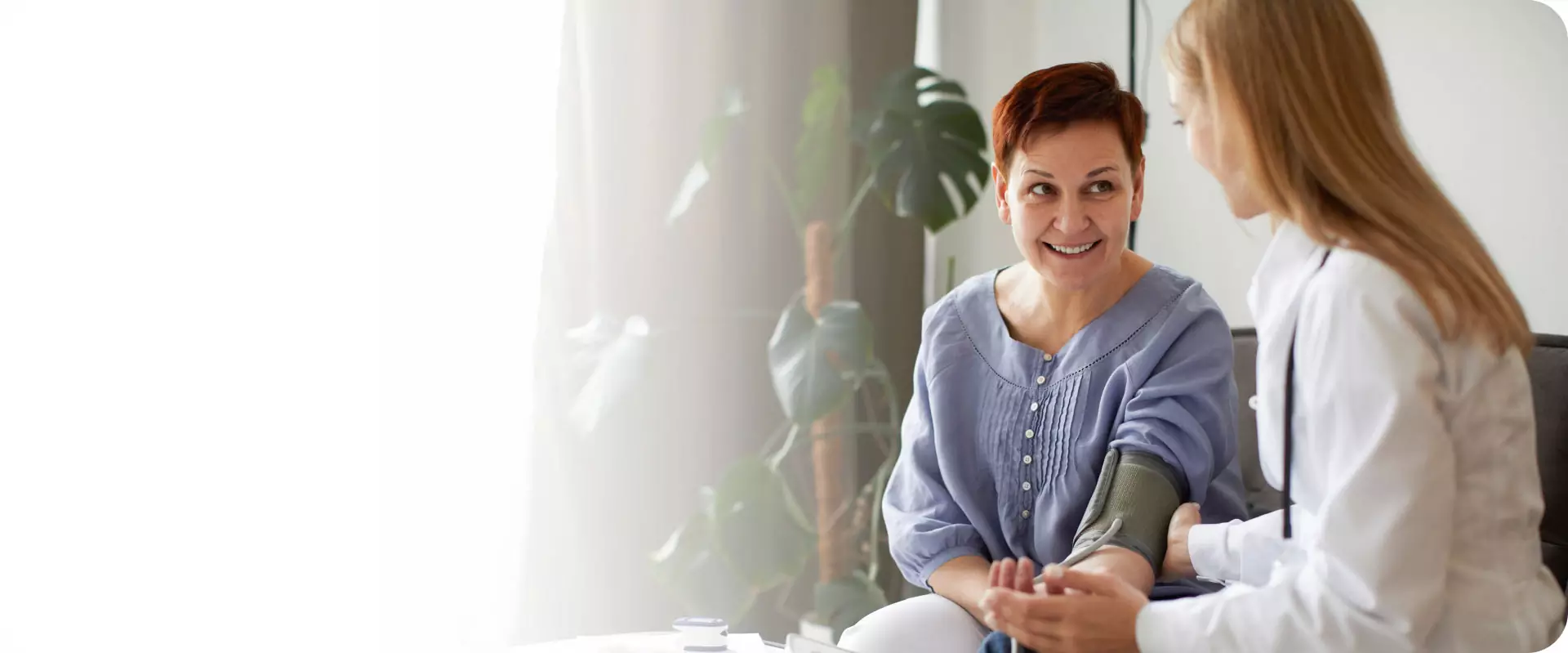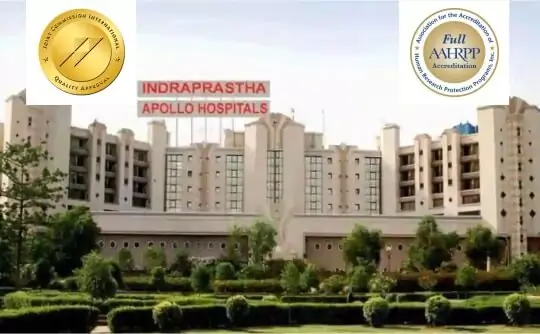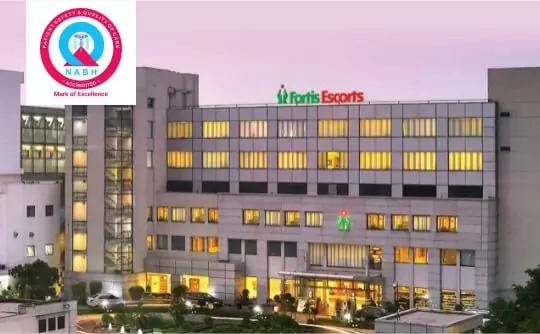

Cardiac Resynchronization Therapy (CRT-D) cost in India starts from US $16,500 and varies depending on the type of device, your medical history and condition, cardiologist, hospital and the city where you choose to get the procedure done.
An important expense when it comes to your cardiac resynchronization therapy is going to be your Interventional Cardiologists's fees. IndiCure recommends only experienced, skilled, board-certified surgeons who are capable of delivering successful heart surgeries. Although the charges may vary depending on the experience of the surgeon, you can be completely assured of being in safe and experienced hands when you choose heart surgery in India with IndiCure.
With the hopes of improving patient care, new techniques and technologies are often introduced to the surgical process. Such innovative advancements in the surgical approach can increase costs.
Having your Cardiac Resynchronization Therapy in an accredited surgical facility by skilled and qualified medical staff is a critical factor. Moreover, the geographical location of this facility also affects the initial quote. But, IndiCure provides you with a projected estimate that will be affordable.
The surgery-related expenses include the pre- and post-surgical expenses.The pre-surgical expenses are associated with the age and medical condition of the patient and thus the number and type of investigations required. Post-surgical expenses may include prescription medications and follow-up consultations.
We at IndiCure, understand that you travel with a budget in mind and do not like to be greeted by surprises after arrival in India. We thus club all these expenses and give you the package cost that is inclusive and affordable at the same time.
Your case manager shall give you an estimated cost of your surgery after discussing your medical reports with the surgeon. The final cost, however, shall be confirmed after your consultation with the surgeon.

We Help you Choose the Right Treatment, Surgeon & Hospital

We Arrange Video/Telephonic Consultation with the Surgeon

We Assist you with Visa & Accommodation

We Receive you at the Airport and Drop you at Hotel/Hospital

We Assist you the at Hospital & Provide Post Operative Support
In fact, we have Special Negotiated Rates with the Hospitals and you can avail Discounted Rates when you choose to Travel with IndiCure.

Cardiac resynchronization therapy is a procedure in which a device is implanted in your chest to help your heart's chambers squeeze (contract) more efficiently and in a more organized way.
A biventricular pacemaker (also known as a cardiac resynchronization device) delivers electrical signals to both lower chambers of the heart after cardiac resynchronization therapy (CRT). The signals cause your ventricles to contract in a more coordinated manner, resulting in better blood pumping out of your heart.
CRT therapy means you will have the pacemaker placed under your skin by minor surgery. Wires from the device are connected to the ventricles on both sides of your heart. The CRT device sends electrical signals to the ventricles to make them pump together the way they should. This type of electrical stimulation is called biventricular pacing.
If your heart rhythm is dangerously unpredictable, the device may also include an implantable cardioverter-defibrillator (ICD), which can give an electrical shock to reset your heartbeat.
Cardiac resynchronization therapy devices include:
Cardiac resynchronization therapy is a treatment for heart failure in patients who have uncoordinated ventricular contractions.
Your heart muscle is weakened with heart failure, and it may not be able to pump enough blood to support your body. This can be exacerbated if the chambers of your heart aren't in rhythm with one another.
Cardiac resynchronization treatment can help you manage your heart failure symptoms and reduce your risk of consequences, including death.
Your doctor will make a small cut (incision) and create a pocket under the skin. This pocket will hold the wires and computer battery pack for the CRT.
Your doctor will put IV lines in the large vein that feeds your heart. He or she will put CRT wires (leads) into the vein and feed them into your heart. Special X-rays will be taken to make sure the leads are in the right place on both sides of your heart.
If the leads are in the right place and working as they should, they will be attached to the CRT pacemaker. Your doctor will put the pacemaker through the incision and under your skin. The incision is then closed with sutures or staples and apply a dressing.
After cardiac resynchronization therapy, you'll spend 1-2 nights in the hospital. Before you leave the hospital, your doctor will test your device to ensure that it is properly programmed. After a few days, most people can resume their normal activities.
It is critical that you follow your doctor's instructions to the letter. For the first six weeks, you may need to minimize activities including lifting, straining, and stretching. Inquire with your doctor about when you can resume specific activities.
Make sure your doctor checks the device's functionality on a regular basis. At least once every six months, this should be done.
In around 7 out of 10 cases of heart failure, cardiac resynchronization therapy is effective. CRT does not work for everyone with heart failure. If you have advanced heart failure, for example, you are less likely to react to CRT. If you have mild to moderate heart failure, CRT may help you live longer, improve your heart function, and enhance your quality of life.
We at IndiCure completely understand your concerns and it is always our endeavor to provide the best outcome for every patient. Following is the list of questions you must ask before you embark on your journey for Cardiac Resynchronization Therapy in India.
Prepare to answer questions about your:


New Delhi
Indraprastha Apollo Hospitals, New Delhi is a state of the art multi speciality tertiary-care hospital situated in the most posh area of South Delhi. Considered to be the flagship hospital of Apollo group, Indraprastha Apollo Hospital is one of the important landmarks not only in Delhi, but in the world map because of its popularity among the medical tourists. The hospital has been one of the most sought after medical institutions for patients from Asia Pacific and beyond.

New Delhi
Fortis Escorts Heart Institute and Research Centre is one of the most revered medical institutions not only in India, but the entire world. The institute has set benchmarks in cardiac care with path-breaking work over the last 25 plus years. The hospital has the most advanced technology and has seen the best outcomes even in the most complex cardiac cases; be it cardiac surgery, Interventional Cardiology, Pediatric Cardiology, Pediatric Cardiac Surgery or Non-invasive Cardiology
CRTs are divided into two categories. One is a unique type of pacemaker. A cardiac resynchronization therapy pacemaker (CRT-P) or "biventricular pacemaker" is what it's called. The other is the similar device, but with an implantable cardioverter defibrillator integrated in (ICD). A cardiac resynchronization treatment defibrillator is the name for this type (CRT-D).
According to these analyses, the median survival after device implantation is 4.62 years for CRT-P and 5.15 years for CRT-D.
References : https://www.ncbi.nlm.nih.gov/pmc/articles/PMC2768584/
You will stay at the hospital for 2-3 days and about a week to ten days in India after the procedure. So, you would need around 12-14 days for your CRT implantation in India.
Yes, the patient can get the MRI done with the implant.
The patient should stay away from certain hobbies like rough sports. Most people can resume their normal daily activities following a full recovery from the surgery.
Many people can participate in their favorite hobbies thanks to an implantable cardiac device. However, some activities, such as rough-contact sports, should be avoided.
Yes. The majority of household appliances are safe to use if they are well-maintained and in good functioning order. Microwave ovens, large appliances, electric blankets, and heating pads are all examples.
Magnetic therapy items, stereo speakers, and hand-held massagers, for example, can have a temporary effect on the operation of the implanted heart device. As a result, things containing magnets should be kept at least six inches away from the heart device.
Patients who use a CRT device can travel with confidence and safety. A Medical Device ID card is given to the patient. This card serves as a reminder to medical and security officials that you have a CRT device implanted.
NOTE: It's critical to keep the card with you when travelling because the gadget contains metal pieces that could set off metal detectors at airport security.
Airport security wands may potentially cause the device to malfunction temporarily. Instead than employing a handheld wand, security staff should do a hand search. If a wand is being used, you can request that the security professionals search the device swiftly and without holding the wand over it. Because it may have an impact on the device.
Enhance your medical journey to India by availing these extra services.
Traveling abroad for medical reasons may be challenging. With our experience of over a decade and working with the best surgeons and top hospitals in India, we help make your medical tour easier and safer for you. We will guide you at every step of the way and make end-to-end arrangements for your surgery, travel, and stay.
Ramandeep Dhaliwal
I had great experience having rhinoplasty through Indicure. Dr. Ruchika from Indicure has helped me in finding best plastic surgeon, answering all my questions...
Read More
Joshua Archer
My name is Joshua Archer I'm from New Zealand, bay of plenty, kawerau I opted for the bypass surgery in January 2023 but planned it in advance for 28 September found IndiCure...
Read More
Kera Ren
Absolutely loved my experience with IndiCure - from first inquiring to meeting the surgeon pre op to my follow up post op. The surgeon was extremely approachable...
Read More
Andreana Paul
Had a wonderful experience. Visited India for my plastic surgery. From sending mails, airport pickup, comfortable accommodation and, to smooth hospital appointment booking...
Read More
Brandi Luce
I had the privilege of using Indicure's services for a cosmetic procedure that I had wanted for a long time but had always been apprehensive about. Ruchika helped me...
Read More
Jade M
Indicure Health Tours went above and beyond my expectations. They helped me with every aspect of my journey and were professional, kind and caring. I was...
Read More
The content on the website (www.indicure.com) is intended to be general information and is provided only as a service. It is not medical advice and should not be taken as medical advice. It should not be used to diagnose or treat a health condition and is in no way meant to be a substitute for professional medical care.
All photographs on our website of before and after results are examples only, and do not constitute an implied or any other kind of certainty for the result of surgery. You are advised to see a surgeon in person to assess what surgery may or may not accomplish for you.
It is also important to keep your expectations realistic and to understand that all surgical procedures carry risks and should never be taken lightly.